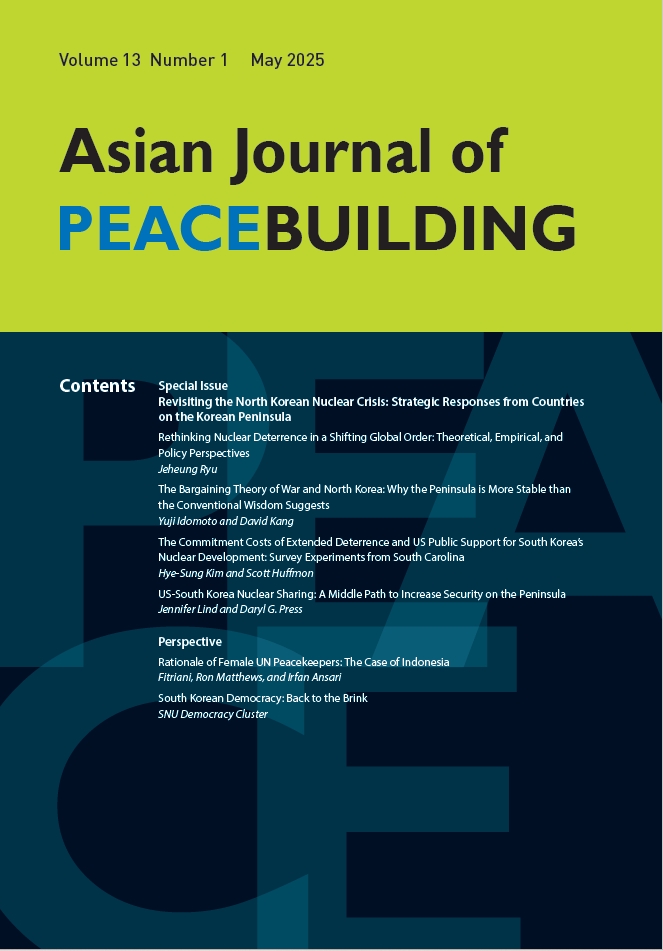Is war becoming more likely on the Korean Peninsula? How might we assess this likelihood? In this article, we apply the bargaining theory of war to the Korean Peninsula, which elicits three key insights. First, both sides of the Peninsula are well aware of each other’s relative power; thus, the information problem that could increase the possibility of war is minimal. Second, the commitment problem concerning North Korea’s denuclearization does not increase the likelihood of war. The commitment problem hypothesizes that war is more likely if there is a rapidly changing balance of power, which does not apply to the current situation on the Peninsula. Finally, there have been no significant changes to the tacit bargaining that has maintained peace on the Peninsula over the years.
Back Issues
Special Issue_Revisiting the North Korean Nuclear Crisis: Strategic Responses from Countries on the Korean Peninsula
The Bargaining Theory of War and North Korea: Why the Peninsula is More Stable than the Conventional Wisdom Suggests
Yuji Idomoto and David Kang pp. 19-40 doi: 10.18588/202505.00a525
PDF Download

